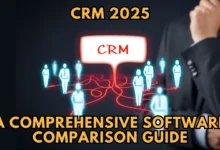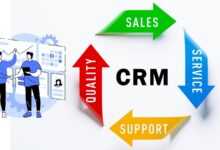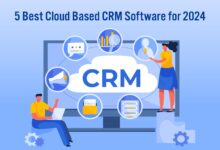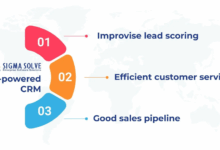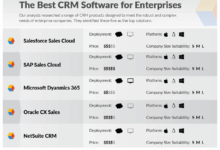Affordable CRM Software for Startups
Affordable CRM Software for Startups is crucial for early-stage businesses navigating limited budgets. Finding the right balance between cost-effectiveness and functionality is key to leveraging a CRM’s benefits without straining resources. This guide explores how startups can select, implement, and utilize affordable CRM solutions to drive growth and efficiency.
We’ll delve into defining “affordable” in the context of various startup sizes, examining essential features, ease of use, integration capabilities, scalability, security, and the importance of robust customer support. The goal is to equip startups with the knowledge needed to make informed decisions about their CRM investments, ultimately maximizing return on investment and fostering sustainable growth.
Defining “Affordable” for Startups
Defining “affordable” CRM software for startups is subjective and depends heavily on the company’s size, revenue, and specific needs. There’s no one-size-fits-all answer, but we can explore a reasonable range based on common startup realities. Understanding what constitutes affordable also necessitates considering both upfront and ongoing costs.
Affordable Budget Tiers for CRM Software
Startups often operate on tight budgets, making the selection of CRM software a critical decision. The following table provides a framework for understanding affordable budget tiers, considering startup size and expected features. Note that these are estimates and actual costs can vary based on vendor, features, and contract length.
| Budget Tier | Startup Size | Expected Features | Example Software |
|---|---|---|---|
| $50-$200/month | Small (1-10 employees) | Basic contact management, lead tracking, task management, basic reporting. Limited integrations. | HubSpot CRM (Free plan with paid add-ons), Zoho CRM (Free plan with paid add-ons) |
| $200-$1000/month | Medium (10-50 employees) | Advanced contact management, lead scoring, sales pipeline management, marketing automation integration, custom reporting, more robust integrations. | Pipedrive, Salesforce Essentials, Freshsales |
Hidden Costs of CRM Software
While the monthly or annual subscription fee is the most visible cost, several hidden expenses can significantly impact the overall budget. These hidden costs often go unnoticed until implementation begins.
| Cost Type | Upfront Costs | Long-Term Operational Costs |
|---|---|---|
| Implementation | Consulting fees, data migration costs, initial setup time | Ongoing maintenance, updates, potential customization fees |
| Training | Training materials, instructor-led training, employee time for learning | Ongoing support, refresher training, user adoption challenges |
| Integrations | Cost of integrating with other software (e.g., marketing automation, accounting), customization | Maintenance of integrations, potential API costs, troubleshooting integration issues |
Trade-offs Between Features and Affordability
Choosing a CRM involves navigating a trade-off between features and affordability. A more expensive CRM will typically offer a broader range of features and functionalities, including advanced analytics, automation, and integrations. However, a less expensive option might lack these advanced capabilities but still provide essential CRM functionality. Startups need to carefully evaluate their immediate needs and prioritize features based on their current stage of growth. For instance, a small startup focused solely on lead generation might not require sophisticated sales pipeline management features initially, opting instead for a more affordable solution with core contact management and lead tracking capabilities. As the startup scales, they can then upgrade to a more feature-rich CRM to accommodate their expanding needs.
Key Features for Startup CRMs
Choosing the right CRM is crucial for startup success. A well-integrated CRM system streamlines operations, improves customer relationships, and ultimately fuels growth. The features you prioritize will depend heavily on your industry and specific business needs, but some core functionalities are universally beneficial.
Startups often operate with limited resources, so selecting a CRM with the right balance of features and affordability is key. This section will explore essential CRM features for different startup types and illustrate their impact on growth.
Essential CRM Features by Industry
The ideal CRM feature set varies significantly across industries. Understanding these differences allows startups to make informed choices based on their unique operational requirements.
- SaaS Startups: Focus on features supporting efficient trial management, onboarding, and customer success. This includes robust contact management, detailed interaction tracking, and integrated support ticketing systems. Lead scoring and pipeline management are also vital for tracking conversions and sales progress.
- E-commerce Startups: Prioritize features that integrate with e-commerce platforms (Shopify, WooCommerce, etc.), enabling seamless order management, customer support, and marketing automation. Inventory management capabilities and detailed sales reporting are also crucial for efficient operations and data-driven decision-making.
- Consulting Startups: Strong contact management, project management integration, and time tracking capabilities are essential. Features facilitating client communication, proposal management, and progress reporting will streamline workflows and improve client satisfaction.
Feature Impact on Startup Growth
Specific CRM features directly contribute to startup growth in measurable ways.
- Contact Management: Centralized contact information ensures consistent communication and prevents duplicated efforts. This leads to improved customer relationships, increased customer lifetime value, and reduced marketing costs. For example, a SaaS startup can use contact details to segment customers for targeted marketing campaigns, leading to higher conversion rates.
- Lead Tracking: Monitoring lead sources, engagement levels, and conversion rates provides valuable insights into marketing effectiveness. This data-driven approach allows startups to optimize their strategies, allocate resources efficiently, and improve ROI on marketing investments. An e-commerce startup can track leads from different advertising channels, identifying the most effective ones and allocating budget accordingly.
- Sales Pipeline Management: Visualizing the sales process allows startups to identify bottlenecks, forecast revenue, and improve sales team performance. This improved visibility enhances efficiency, accelerates sales cycles, and ultimately drives revenue growth. A consulting startup can track the progress of each project through different stages, enabling proactive issue management and timely delivery of services.
Comparison of Affordable CRM Options
The following table compares the feature sets of three popular, affordable CRM options (names replaced with CRM A, CRM B, and CRM C to avoid endorsements).
| Feature | CRM A | CRM B | CRM C |
|---|---|---|---|
| Contact Management | Basic contact details, custom fields | Advanced contact management, segmentation, tagging | Basic contact details, limited custom fields |
| Lead Tracking | Lead source tracking, basic reporting | Lead scoring, automated workflows, advanced reporting | Lead source tracking, limited reporting |
| Sales Pipeline Management | Visual pipeline, basic stage tracking | Customizable pipeline, automated notifications, forecasting | Visual pipeline, limited stage customization |
| Integration Capabilities | Limited integrations | Extensive integrations with popular apps | Moderate integrations |
| Automation Features | Basic automation (email templates) | Advanced automation (workflows, triggers) | Limited automation |
| Pricing | $X/month | $Y/month | $Z/month |
Ease of Use and Implementation
Choosing the right CRM for your startup hinges significantly on its ease of use and the smoothness of its implementation. A complex system can overwhelm your team, hindering adoption and ultimately negating the benefits of CRM integration. Simplicity and intuitive design are paramount for maximizing efficiency and minimizing disruption to your daily operations.
For non-technical startup teams, user-friendliness is not just a desirable feature; it’s a necessity. An intuitive interface minimizes the learning curve, allowing employees to quickly grasp the system’s functionalities and focus on their core tasks rather than grappling with confusing software. A poorly designed CRM can lead to frustration, resistance to adoption, and ultimately, a wasted investment. The ideal CRM should require minimal training and offer readily available support resources.
Ideal Onboarding Process for Startup CRM Adoption
A successful CRM implementation begins with a well-structured onboarding process. This should involve a phased approach, starting with a thorough needs assessment to identify specific requirements. Next, the chosen CRM should be configured to align with these needs, followed by comprehensive training for all relevant personnel. This training should be tailored to different roles and skill levels, ensuring everyone feels comfortable using the system. Post-implementation support, including ongoing assistance and troubleshooting, is crucial for long-term success. Regular check-ins and feedback sessions allow for adjustments and optimizations, ensuring the CRM continues to meet the evolving needs of the startup. For example, a startup might start with a small group of users for initial testing and feedback before a full company rollout.
Cloud-Based versus On-Premise CRM Implementation Complexities
Cloud-based CRM solutions generally offer a significantly simpler implementation process compared to on-premise systems. Cloud-based CRMs require minimal IT infrastructure setup and maintenance. Data is stored and managed remotely by the vendor, eliminating the need for internal server management and associated complexities. Implementation often involves user account creation, data migration (if necessary), and user training. In contrast, on-premise CRM solutions require significant upfront investment in hardware, software, and IT personnel to manage the system. Installation, configuration, and ongoing maintenance can be complex and time-consuming, often requiring specialized technical expertise. For example, a cloud-based solution might be implemented within a week, while an on-premise solution could take several months, involving extensive planning and resource allocation. The ongoing maintenance costs for on-premise systems can also be substantial.
Integration Capabilities
A crucial aspect of any effective CRM, especially for resource-conscious startups, is its ability to seamlessly integrate with other vital business tools. This interconnectedness streamlines workflows, prevents data silos, and ultimately boosts productivity and efficiency. A well-integrated CRM acts as a central hub, consolidating information from various sources to provide a holistic view of customer interactions.
Integrating a CRM with other essential startup tools offers significant benefits. By connecting your CRM to email marketing platforms, social media management tools, and accounting software, you can create a unified system that automates tasks, improves data accuracy, and provides a more complete picture of your customer base and business performance. This integrated approach eliminates the need for manual data entry and reduces the risk of errors, saving valuable time and resources.
Benefits of CRM Integration with Other Startup Tools
Connecting your CRM to email marketing platforms allows for targeted campaigns based on customer segmentation within the CRM. For example, you could segment customers by purchase history and send tailored email promotions. Integration with social media tools enables tracking of social media engagement, allowing you to identify potential leads and nurture them through the sales funnel directly within the CRM. Finally, integrating with accounting software facilitates automated invoice generation and tracking of payments, providing a clear view of revenue generated from specific customer interactions.
Examples of Successful CRM Integrations and Their Impact on Efficiency
Consider a startup using HubSpot CRM integrated with Mailchimp for email marketing and Xero for accounting. This setup allows the sales team to automatically add new leads from Mailchimp campaigns into HubSpot, track their interactions, and ultimately convert them into paying customers. The integration with Xero automatically updates invoices and payments, providing real-time financial insights linked to specific customer interactions within HubSpot. This eliminates manual data entry, reduces errors, and improves overall efficiency. Another example could involve a SaaS company using Salesforce integrated with their social media platform and a project management tool. This allows them to monitor customer feedback on social media, manage support tickets, and track progress on projects, all within a single system, significantly streamlining operations.
Importance of API Access and Open Standards for Seamless Integration
API (Application Programming Interface) access and adherence to open standards are vital for ensuring seamless integration between different software applications. An open API allows developers to create custom integrations and connect the CRM with a wide range of third-party tools. Open standards, such as RESTful APIs, ensure interoperability and prevent vendor lock-in, giving startups the flexibility to choose the best tools for their needs without being restricted by proprietary systems. A CRM lacking robust API access limits its integration capabilities and can hinder a startup’s ability to build a truly integrated and efficient business system. Choosing a CRM with a well-documented and widely supported API is therefore crucial for long-term scalability and flexibility.
Scalability and Future Growth
Choosing a CRM that can adapt to your startup’s evolving needs is crucial for long-term success. An affordable CRM doesn’t have to mean sacrificing scalability; many solutions offer flexible pricing plans and features that grow with your business, avoiding costly migrations and disruptions down the line. This section explores how to leverage scalable CRMs for sustained growth and outlines a strategic approach to data migration as your needs expand.
A scalable CRM allows your business to add users, features, and data storage capacity as your company expands without requiring a complete system overhaul. This avoids the significant time and financial costs associated with switching to a new platform. For example, a startup initially using a basic CRM with limited contact storage and basic reporting features could seamlessly upgrade to a plan with increased storage, advanced analytics, and automation tools as its customer base and team grow. This incremental approach ensures your CRM remains a valuable asset throughout your startup journey.
Data Migration Strategies for Expanding Startups
Effective data migration is key to a smooth transition as your startup grows and its CRM requirements evolve. A well-planned migration minimizes disruption to daily operations and ensures data integrity. This involves several key steps: First, a thorough assessment of your current data and the capabilities of your new CRM is necessary. This helps determine the most efficient data transfer method. Next, a phased approach to migration often proves beneficial, allowing for testing and refinement before complete system switchover. Finally, robust data validation post-migration is crucial to ensure data accuracy and consistency within the new system. Consider using a professional data migration service for large datasets to minimize risks and ensure a smooth transition. For instance, a startup migrating from a spreadsheet-based system to a cloud-based CRM might begin by migrating a subset of data to test the process and identify potential issues before migrating the entire dataset.
Long-Term Cost Implications of CRM Scalability
While the initial cost of a scalable CRM might seem higher than a limited-functionality alternative, the long-term cost implications often favor scalability. A limited-functionality CRM may require multiple migrations and integrations as your business expands, leading to significant expenses over time. These costs include data migration fees, software licensing fees for new systems, employee training, and potential productivity losses during the transition. Conversely, a scalable CRM allows for incremental upgrades, keeping costs manageable and avoiding the disruption of complete system replacements. For example, a startup that chooses a scalable CRM might pay a slightly higher monthly fee, but avoid the tens of thousands of dollars that could be spent on multiple CRM migrations and integration over several years. This long-term cost-effectiveness makes scalable CRMs a worthwhile investment for startups aiming for sustainable growth.
Security and Data Privacy
Protecting your startup’s customer data is paramount. A robust security posture isn’t just a good idea; it’s a necessity for maintaining customer trust, complying with regulations like GDPR and CCPA, and avoiding potentially devastating data breaches. Choosing a CRM with strong security features from the outset will save you headaches and potential legal issues down the line.
Data security and privacy are fundamental aspects of any CRM system, especially for startups dealing with sensitive customer information. Breaches can lead to financial losses, reputational damage, and legal repercussions. Implementing appropriate security measures is crucial for protecting customer trust and ensuring business continuity.
Data Encryption and Storage
Data encryption safeguards customer data both in transit and at rest. Look for CRMs that employ robust encryption methods, such as AES-256, to protect sensitive information. Secure data storage practices, including data backups and redundancy, are equally important to ensure data availability and resilience against potential failures or attacks. Many affordable CRMs now offer these features as standard.
Access Controls and User Permissions
Effective access control mechanisms limit access to sensitive data based on user roles and responsibilities. This ensures that only authorized personnel can view or modify customer information. Role-based access control (RBAC) is a common and effective approach. Features like two-factor authentication (2FA) add an extra layer of security, preventing unauthorized access even if credentials are compromised. Startups should prioritize CRMs with granular control over user permissions.
Security Measures Offered by Affordable CRM Providers
A comparison of security measures across various affordable CRM providers reveals a range of offerings. While specific features vary, common security elements include:
- Data Encryption: Most providers utilize AES-256 encryption for data both in transit and at rest.
- Access Controls: Role-based access control (RBAC) is prevalent, allowing administrators to define specific permissions for different user roles.
- Regular Security Audits: Reputable providers conduct regular security audits and penetration testing to identify and address vulnerabilities.
- Compliance Certifications: Some providers hold certifications such as ISO 27001 or SOC 2, demonstrating their commitment to data security best practices.
- Data Backup and Recovery: Robust backup and recovery mechanisms are essential for business continuity in case of data loss or system failure.
Note that the specific security features and their implementation may differ significantly between providers. It is crucial to carefully review the security policies and documentation of each CRM before making a decision. For example, while many offer AES-256 encryption, the implementation details and frequency of security updates can vary.
Customer Support and Resources
For startups, choosing the right CRM is crucial, but equally important is the level of support offered by the vendor. A robust support system can significantly reduce friction during implementation and ongoing use, preventing costly downtime and ensuring a smooth user experience. Effective support translates directly into increased productivity and faster ROI.
Ready access to customer support and comprehensive documentation is invaluable for startups, often operating with limited internal IT resources. Thorough documentation allows users to resolve issues independently, while readily available support channels provide assistance when needed, minimizing disruption to workflow. This is especially critical during the initial implementation phase, where questions and troubleshooting are common.
Ideal Support Channels for Startup CRMs
Effective customer support is multifaceted and should cater to diverse user preferences and urgency levels. A combination of channels ensures accessibility and responsiveness. Email support provides a documented record of interactions, suitable for non-urgent issues or detailed inquiries. Phone support offers immediate assistance for critical problems requiring immediate resolution. Live chat provides quick answers to simple questions and immediate guidance, ideal for resolving minor issues quickly. Finally, community forums foster peer-to-peer learning and problem-solving, creating a collaborative environment where users can share solutions and learn from each other’s experiences. A comprehensive support system should ideally incorporate all these channels.
Comparison of Customer Support Across Affordable CRM Options
Different affordable CRM providers offer varying levels of support. Some may prioritize email support with longer response times, while others may offer premium phone or chat support as add-on features. For example, a hypothetical CRM, “SimpleCRM,” might offer robust email and community forum support, while “QuickCRM” might provide faster response times via live chat but limit phone support to paid plans. Another provider, “EasyCRM,” might excel in its comprehensive knowledge base and video tutorials, minimizing the need for direct support interactions. It’s essential to carefully review the support options offered by each provider before making a decision, aligning the support structure with the startup’s specific needs and resources. Consider factors such as the anticipated volume of support requests, the team’s technical expertise, and the urgency of resolving issues when comparing options.
End of Discussion
Selecting the right affordable CRM is a pivotal decision for startups. By carefully considering factors such as budget, essential features, ease of use, integration needs, scalability, security, and customer support, startups can find a solution that empowers their teams, streamlines operations, and fuels sustainable growth. Remember that the initial investment is only one aspect; the long-term value and return on investment should be the ultimate guide in your selection process.
